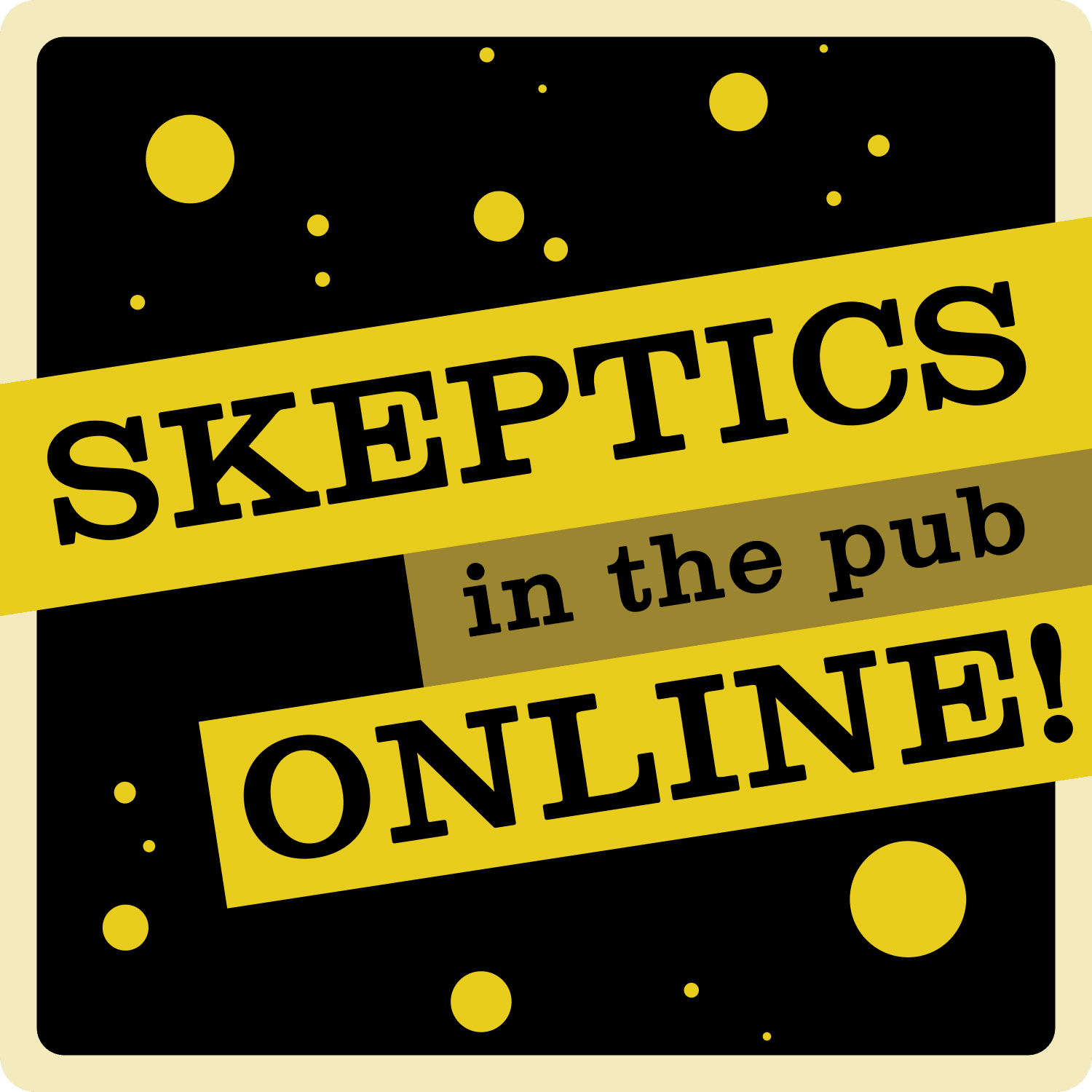Friday 24th October
Find us in the Park Suite on the fourth floor of the Mercure, Manchester, and if you can’t make it, we’ll be livestreaming the event at twitch.tv/sitp from 11am UK time.
10:45 am
Doors Open
11:00 am
Start
11:05 am
Session 1
With stressful competition and very little actual evidence to go on, TV smash hit The Traitors is a masterclass of flawed reasoning and leaps of logic. In this talk, Jim will look at some of the shakiest arguments contestants across the world rely on when hunting traitors, to see if we can learn from their mistakes.
Jim is one of the hosts of the Fallacious Trump podcast, where he and co-host Mark Levermore explain logical fallacies using examples from Trump (as well as pop culture and UK politics)
Twentieth-century histories of stage magic widely tell a story of a conjuror called deLinsky accidentally causing the death by shooting of his wife on stage in Arnstadt in c.1825, As the trail of citations leads backwards, however, it looks like we will find that this event is a mythical as the incident with the Hartlepool Monkey. In this talk Andrew will use contemporary documents to show whether this story is based on real events, and suggest principle for parsing myths from nuggets of truth.
Andrew is a independent cultural historian and co-organiser of Newcastle Skeptics. His books include The Cinema and the Origins of Literary Modernism (2012), The Origins of the Film Star System (2019) and half of a BFI Film Classic on Back to the Future (2010). He was editor of the journal Early Popular Visual Culture for 12 years.
Examining how we quantify phenomena in science and how failing to do so properly can lead to errors in measurement and conclusions. While also providing a note of the trials and tribulations of completing a PhD.
Ash is currently in their psychology and neuroscience PhD final year focusing on vision loss. They were science and environment editor for their local student newspaper (until they got way too busy and stressed with the PhD) and work in science communication and education with the charity Techfest. Will have been a 3 time QED attendee but wish it could have been many more, they are very grateful with the work everyone has done for the conference and the wonderful Skepticamp and SitP organisers!
Learn about these casual pop-up gatherings where strangers come together to eat cake, sip tea, and chat about the one thing we’re all headed toward but no one wants to RSVP for — death. Why honest conversations about death, dying, mortality, grief, and what happens after you become worm food are a good thing! All over a slice of sponge cake (not included today). Because nothing says “memento mori” like a forkful of frosting. The real twist? You leave feeling more alive than when you arrived.
Lara is a Humanist Celebrant, conducting funerals and memorial ceremonies since 2011. Based in Scotland, she is also the Community Engagement Manager for the national charity Humanist Society Scotland, and has run various events to mark Demystifying Death Week, and for ‘To Absent Friends’ people’s festival of storytelling and remembrance – because dead ordinary people live on in the memories and stories we share.
12:10 pm
Session 2
In nineteenth century Europe, colonisation was all the rage. The major powers would sail around the world, planting flags all over the place. As the various empires dissolved in the twentieth century, nations arose and adopted their own flags. I will give a small sample of how some of these countries decolonised their flags.
Tom is the skeptic’s resident vexillologist (flag nerd), having given talks on flags for Skepticamp, SITPO, and various others. He’s one half of the Retrospecticus podcast, and is determined to win some money on a TV quiz one day.
The public perception of forensic science is colored by shows like CSI, NCIS, and others. This makes the job of an actual expert that much more difficult when trying to explain their job to a jury in court. So let’s break down what exactly it is I do all day in simple terms. It may not be as exciting as what the cop shows paint, but I promise it’s still cool!
Ben O’Brien (BSc, MSc) has a masters in Forensic Science from Virginia Commonwealth University and currently works as a forensic DNA analyst for a private company based out of northern Virginia, primarily analyzing sexual assault kits for the state of Maryland, working on backlogs as far back as the late 80s as well as more recent cases.
In 1994 the ferry MS Estonia sank on the Baltic Sea, With 852 lives lost, it is the deadliest peacetime shipwreck ever to have occurred in European waters. With the instability of the region and the Soviet Union falling apart less than three years before, the tragedy fueled an endless amount of conspiracy theories, each more bizarre the other. What are they and will people ever be convinced by the official story?
Pontus Böckman is the president of the European Council of Skeptical Organisations (ECSO), former president of the Swedish Skeptics (VoF) and co-host of the European Skeptics Podcast, the ESP.
The President of the United States emails me five times a day asking for money. These emails are oddly similar to another set of messages I was receiving around the time that QED started way back in 2011. This talk looks at the amusing (and concerning) similarities that I have noticed in over a decade of correspondence from charlatans, how my involvement with QED has intersected with this and the importance of continuing the Sisyphean project of compassionate skeptical activism.
Emma is a former QED main stage speaker and solicitor specialising in prison and public law. She regularly represents prisoners before the Parole Board. In what is left of her spare time, Emma enjoys running and boring other people about how much she enjoys running.
1:10 pm
Lunch
1:55 pm
Session 3
In 1563 Dutch physician Johann Weyer published a skeptical takedown of the early modern witch trials, encouraging compassion towards the women accused of witchcraft and an end to this silly notion of demonic power. The witch trials would go on to kill tens of thousands of women across europe. So what went wrong? Using Weyer’s example, we’ll take a look at the perils of thinking you’re the smartest one in the room, as well as the dangers of a skeptical movement without human rights at its core.
Cass is a former sociology professor who has since transitioned into a role as a professional sick person. He spends his days making art and falling down random research rabbit holes. He occasionally surfaces and presents on a range of topics including disability and queer issues. He is assisted in these efforts, with varying levels of helpfulness, by a menagerie of quadrupeds.
At the QED last year I had to answer several questions relating to a pin on my hoodie. It was the logo of the paracryptozoological society. Having attended their annual meeting for the second time in 2025, I think skepticamp is the right place to present their hilarious work. Spoiler: This has nothing to do with cryptozoology!
Michael is a mathematician who retired 2023 from his job as a consultant in life-insurance business. He entered the skeptical world in 1996, when he occasionally bought a book with some stories from the skeptical inquirer. With a wide range of skeptical interests (incl. numerology) he later authored the annual review of predictions from astrologers, clairvoyants and similar people for more than 20 years, leading to numerous radio and TV interviews on the topic.
The title is bait but the experience was real. When Australia began COVID vaccinations I signed up to be a vaccinator immediately. I’d been working in ED and ICU throughout the pandemic and had seen the death and disability first hand, but then I had my first vaccine injury patient, 2 days before my redeployment. As a healthcare worker and skeptic, juggling the cognitive dissonance was tough, particularly with all the anti-vaxxers getting so much airtime. This is my account of that period.
Trish used to be an NHS radiographer and UK based skeptic before running away to Australia for a better life. Now she’s a trauma specialist radiographer and educator in a Sydney hospital enjoying the southern hemisphere but occasionally missing the crunch of snow. Her last QED was shortly before emigrating in 2015, so this one will be a cracker.
In an era awash with hot takes, adding one’s own opinion to the pile might seem pointless. This is not true. Writing opinion pieces and letters to the editor is still an effective way to reach key decision-makers and raise issues of concern. This talk will cover why skeptics should write these pieces, how to do so effectively, and why one need not be a subject matter expert to write an effective, persuasive op-ed.
Paul is a production editor on the Opinion desk of the South China Morning Post in Hong Kong. He has also worked in various positions for outlets in the US, mainland China, Indonesia, the UAE, and Japan. He has degrees from Temple University, Japan campus (B.A., Asian Studies) and the National University of Singapore (Master in International Affairs). When not at work, he can be found on Twitch or YouTube seeking out more indie games to champion.
3:00 pm
Session 4
Comprehensive trials, ideally placebo controlled, are the backbone of modern evidence based medical practice, but this process often leaves infants and children out of the picture. Instead, their care is dictated by expert opinion, extrapolation from adult studies, and individual provider preference with their “standard of care” falling into an “off label use”. In this talk we discuss the systemic reasons behind the lack of data in pediatric care and what has been tried to fill the gap.
Logan Zapor, MD is a US trained and board certified general pediatrician with areas of interest in the care of transgender and sexual minority youth and child advocacy.
True crime is big business these days and on social media the armchair detectives love to delve into evolving, real life cases and try to seek ‘the truth’. Here’s some examples of when these ‘detectives’ take it too far.
Karin is a 30 something skeptic and mother of 1 feral toddler. She’s been attending QED on and off for the past 10 years.
What is black salve? Why are people so obsessed with using it for skin ailments, including cancers? Is there any science behind it? Should you immediately order some from an dodgy place on the internet and use it for all your dermatological needs?Probably features gruesome photos.
Heidi has 19 cats and kittens in the house and does not have time to be writing bios. Even if she did, it’d probably still say something about cats. She likes singing, acting, and escape rooms.
Dad jokes are a source of both mirth and misery when wielded by teachers. Why? Are they actually a secret weapon helping achieve the ultimate mission or just a side quest for popularity? Is this an evidence based assessment of teaching methods or an attempt to justify years of bad puns? Could it even be both…
Caradoc is a 4 time winner of best male actor in his house, though he lost out to his cat Aslan, last year. He is still not barred from teaching and continues to do so at a Special School in London. A science and behavioural specialist, he can be found breaking his own rules almost every time the opportunity presents itself. A proud father of 2 daughters, an amateur poet and ropy musician, Caradoc is the embodiment of the phrase “multi-talentless”. Oh, and he’s Welsh.

